Special investigation: The collapsing world of Liverpool’s charity kingpin
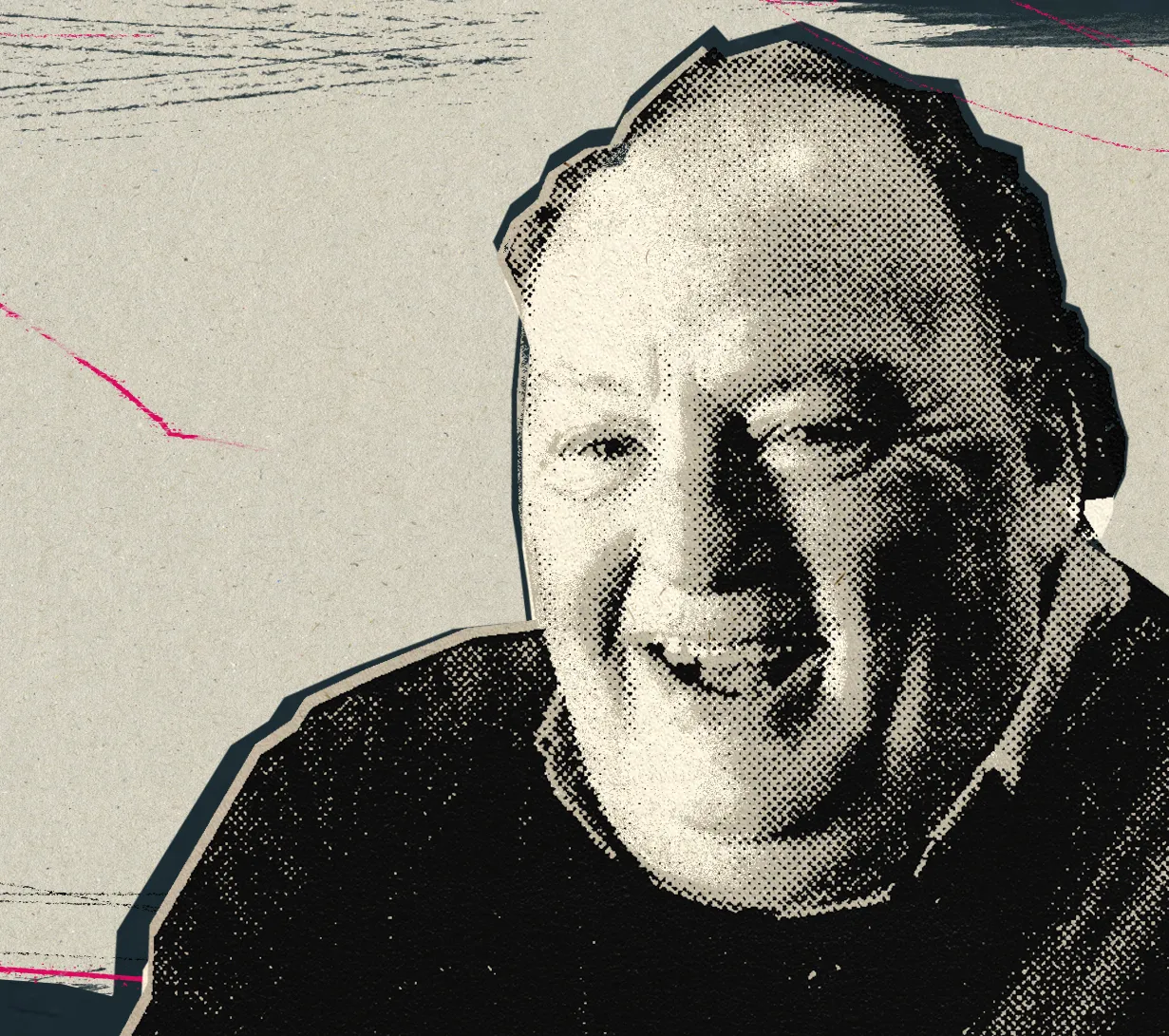
Former Labour councillor Peter Mitchell runs a charity that claims to bring in £15m a year. But there’s plenty that doesn’t make sense about Big Help Project
In late October last year, Southport FC announced a surprise takeover. The new chairman was Peter Mitchell, a former Labour councillor in Liverpool who has forged a new career in recent years as the head of Big Help Group, a sprawling empire of charities and companies that says it is tackling poverty and homelessness across the country.
The growth of the group has been eye watering. Five years ago, it was known primarily for delivering food banks around Merseyside. Then, between 2018 and 2022, the annual income recorded by its main charity rose from just over £400,000 to almost £16m. Local politicians have described its work as “incredible” and last year, Mitchell was invited to a meeting at 10 Downing Street.
But Southport’s fans clearly had questions. In a video on the club’s YouTube channel, Mitchell was interviewed about Big Help’s acquisition. After a couple of minutes, the interviewer addressed the elephant in the room. “Some people have been asking me already, how is a charity becoming involved in a football club?” he asked the new boss.
Mitchell – a large man in his mid-60s, with tufts of grey hair on the back of his head, wearing a shirt under a dark fleece – began to explain. Big Help Group is the “parent group which covers a whole number of companies,” he explained, including a building arm, a housing association arm and a charity that runs food banks and other services. “But the charity hasn’t bought the football club, it is the for-profit arm that has bought the football club.”
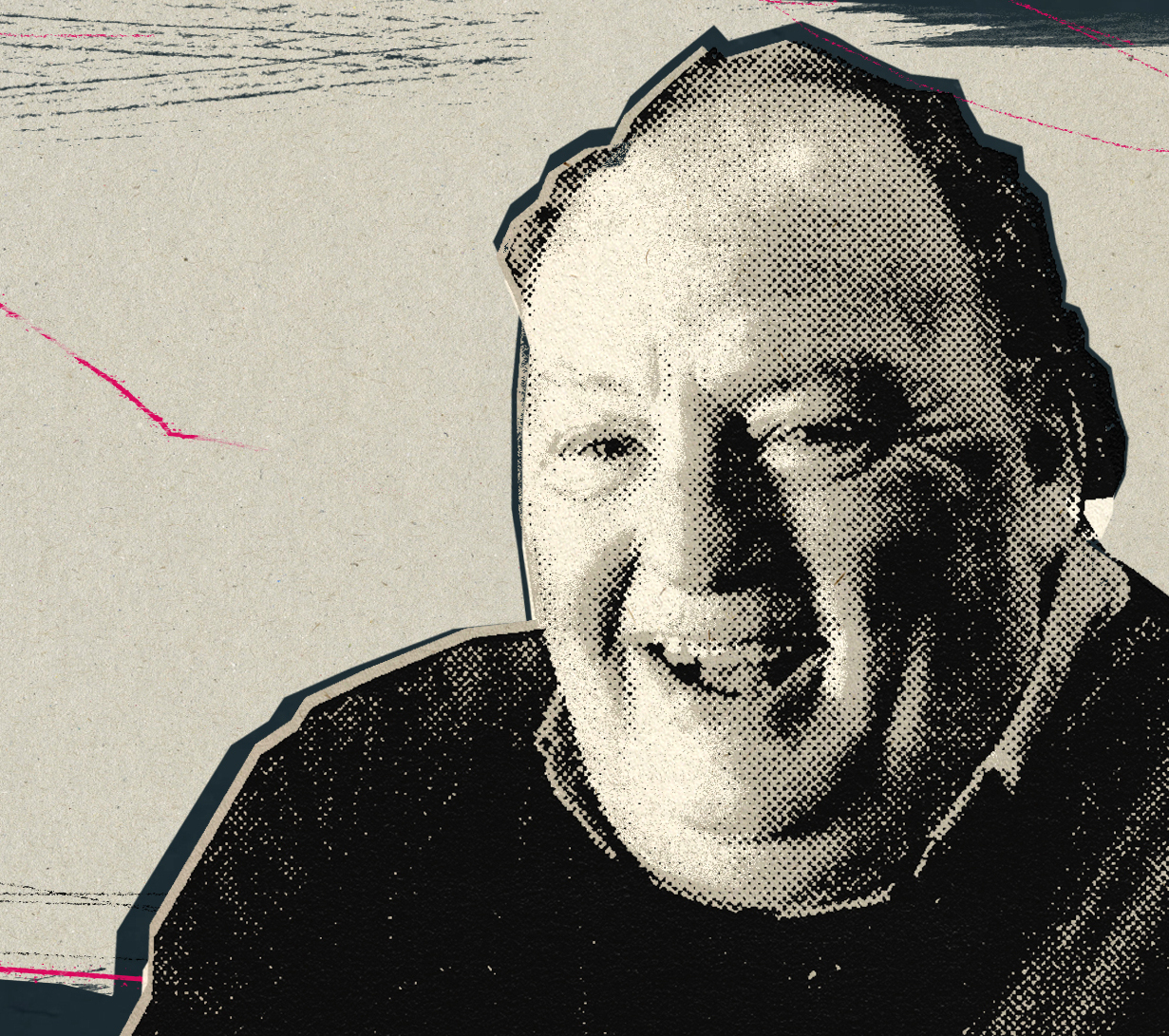
Soon Mitchell was facing more searching questions about his affairs. On December 7th, just weeks after his takeover of Southport was confirmed, the Charity Commission launched an inquiry into Big Help Project, Mitchell’s largest organisation. The regulator had noticed a “significant increase in its reported income”. After taking a look at the charity, investigators had “concerns around trustee decision making, potential unauthorised trustee benefit and unmanaged conflicts of interest.”
Three of the charity’s five trustees have recently resigned, including Mitchell’s partner Colette Goulding, a serving Labour councillor in the ward of West Derby Muirhead. And in February, when the Charity Commission's inquiry was announced publicly, Big Help Project said it was looking forward to "clearing up any issues raised during this process.”
But there is a lot to clear up.
Since July last year, The Post has been trying to get to grips with what is going on inside the Big Help empire, including reviewing hundreds of pages of public records, consulting financial experts and interviewing people who have worked at Big Help and those who know Mitchell personally. From the very beginning we have found curious holes in how the group operates and seen evidence that Mitchell derived most of his charity’s income from an unsustainable housing model that has led other organisations to financial ruin.
Most seriously, we have spoken to tenants in the housing that Big Help provides. Their experiences suggest a group that has prioritised breakneck growth over the wellbeing of the people in its care, leaving them to suffer – and in some cases, die – in shamefully poor accommodation. One former staff member described what she saw as “extremely shocking and upsetting” and recalls “a number of suicides” among people who were supposed to be housed by the charity. Because of the lack of support provided to these people, “the bodies were left there for days”.
Mitchell told The Post he is “incredibly proud” of the work his charity has done, including feeding close to 240,000 people across the Liverpool City Region last year. He says he is “very sorry” about tenants who have been let down. But some of our harder questions have gone unanswered.
A lonely death
*names have been changed
Sam* was one of the first friends Maya* made in Liverpool. He was in his early 20s and had moved into a flat next door to her in the summer of 2021. She regularly invited Sam over for breakfast and dinner, and each time he came over, he would complain to her about the state of his flat. He told her water was leaking through the ceiling and he had mould on the walls. It was having a detrimental effect on his mental health, he said.
Maya is around 50 years old, always dresses in bright colours and comes across as extremely chatty, perhaps a little erratic at times. Maya is not her real name – she got in touch with me last July to tell me about Big Help, but she would prefer not to be identified in this story.
Sam lived in supported housing operated by Peter Mitchell’s Big Help Project. Vulnerable people like Sam, whether they are domestic abuse survivors, suffering from mental health issues or recovering addicts, are entitled to higher benefit payments that are “exempt” from the usual caps on housing benefit. These higher payments (sometimes the difference between £300 a month for regular housing benefit and £850 a month for enhanced benefit) are supposed to fund “intensive support”, as Big Help’s website puts it. This includes “welfare, wellbeing, food support, debt advice, counselling, and any other problems the client may be facing.”
One day, Sam didn’t show up for his usual breakfast with Maya. She didn’t think anything of it at first; he had spoken about taking a trip to Scotland, so perhaps that’s where he was. His welfare officer would know his whereabouts, she thought. But days passed without any sign of him. His welfare officer from the charity came knocking but didn’t think to break open the door or report his absence to the police.
A week later, Sam’s body was found. He had been dead for six days and his dog had been locked inside the flat with his body. Police cars swarmed outside, with one neighbour recalling the sight of Maya standing outside crying. “I came home and it was like all hell broke loose,” the neighbour tells me, adding that the events of that week still haunt her, two years on.
His death sent Maya spiralling into a deep depression. She begged Big Help to relocate her, unable to live next door to the place where her friend hanged himself. They obliged, moving her into another property in Liverpool, this one run by a different arm of Big Help’s “social impact ecosystem”, a community interest company called Big Help Homes. Mitchell is now the only active director of the company after his partner, the serving councillor Colette Goulding, resigned as a director five days before Christmas last year.
The new property was a little damp, they warned her, but they’d fix it up if she took it. Over two years on from when she moved, however, the damp continues to spread, fresh black mould sprouting from behind her wardrobe. When I visited her in October last year, she showed me a damp patch spread across a third of her living room ceiling.
“Of course, we do have issues ranging from minor things to more serious matters – we are not perfect and all housing needs repairs,” Big Help told me when I presented her case to them. “But for anyone we have let down, we’re very sorry.” The group did not answer any of my specific questions about Sam’s death beyond confirming that it took place, and said without more specific details about Maya’s case, they couldn’t respond.
“Our team is dedicated to supporting our residents in the most positive way we can – it’s what we do, it’s why the charity was founded,” the group’s statement went on. “However, we do support vulnerable people with complicated lives. Sometimes it’s not as simple as just fixing something. For those issues that do persist longer than what we’d hope, and we do have a limited number of these, there are always two sides to the story. We are confident these cases are a tiny percentage overall, but we want them resolved more than anyone.”
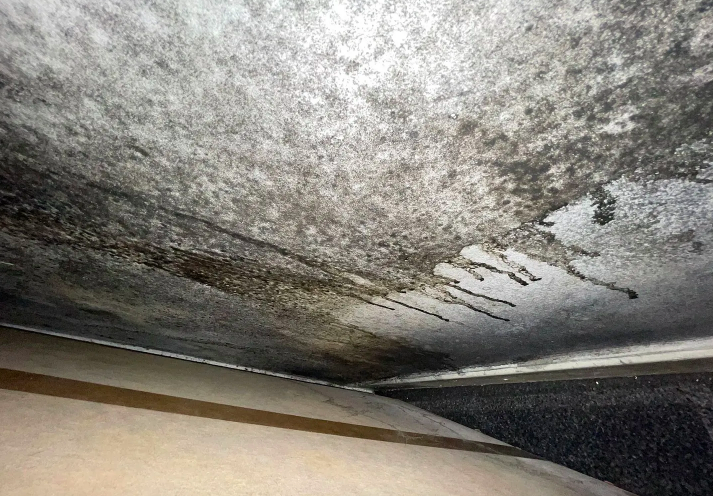
Big Help was supposed to be Maya’s salvation, offering her a fresh start after she escaped an abusive home near London. The charity had won plaudits for its work tackling poverty via good quality housing and support. Instead, she says, it has felt like a further circle of hell.
“I really thought that this was the beginning of a new chapter for me,” she told me, “but instead it’s all been traumatising.”
The comeback kid
Peter Mitchell doesn’t have a typical background for a Labour councillor in Liverpool. Born in 1960, his most notable role before entering politics was running a kitchen manufacturer, which he founded in his mid-thirties with two other men and ran as chief executive and finance director.
In an interview with the Guardian in 2016, Mitchell said surviving the Hillsborough disaster – where he was in the pen behind the goal – had a “profound impact” on his life. Working in the private industry, he eventually decided “the youthful desire to change the world maybe was more important.”
His role as a councillor and the head of a foodbank charity was about “public service, I hope, in the best sense of the word”. Reflecting the concerns of the day, the Guardian interviewer wanted to know about his support for Jeremy Corbyn, but Mitchell seemed more interested in talking about local policy, specifically about the “innovative” solutions being tried in Liverpool, where the council was partnering with private organisations. “Local authorities will absolutely have to become commissioners rather than deliverers of services,” he said.
In the online video of the interview, Mitchell answers the questions thoughtfully while also displaying a tendency for self-aggrandising rhetoric. The city’s finances were about to fall off a cliff, he warned. “I’m going to stand on top of that cliff and make somebody push me off, because I am going to defend my community in the best way I can – in a joined up, innovative, entrepreneurial way.”
Elected to the council in 2010, Mitchell was known to colleagues as a combative and sometimes temperamental man. “He certainly wasn’t afraid to speak up,” former mayor Joe Anderson tells me. “He was very active, especially if the issue was about poverty or his ward — I’d say he was very passionate.”
Another former Labour colleague, who didn’t want to be named, portrays Mitchell as a divisive figure. “He kind of split opinion within the party,” they tell me. “Some were like ‘That’s just Peter being Peter’, others were really intimidated by him.” They add that Mitchell often told colleagues he loved being “the man with the power” and that he boasted several times that he had been at the Battle of Orgreave during the miner’s strike in 1984. This is a claim I can’t find any evidence of him making publicly.
Mitchell is sometimes described as having co-founded Big Help Project, but Charity Commission records show that he only became a trustee in 2013, more than two years after it was set up under its original name of Jubilee Church Knowsley. In its 2015 accounts, the charity (which listed its objective as “to advance the Christian faith”) said it had gone from operating the Knowsley Foodbank to running eight distribution centres, which had distributed food worth almost £90,000.
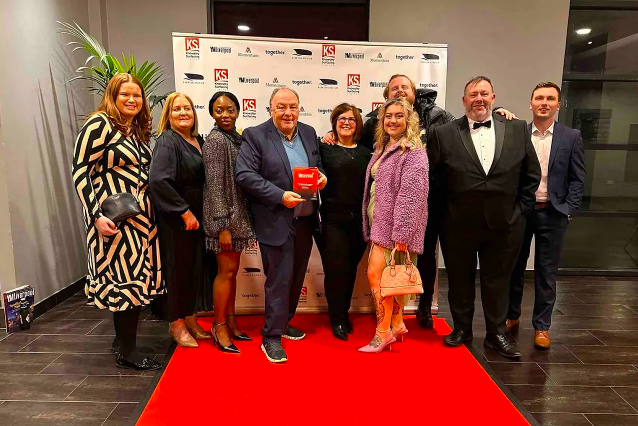
Mitchell was the charity’s chairman, and he was clearly highly committed to its growth. Another councillor remembers Mitchell standing up just before a council meeting, walking up and down the room giving out business cards for the Big Help, trying to rally support among fellow councillors.
But around five years ago, things started to go badly wrong for Mitchell’s political career. In 2018, the BBC reported that he had threatened fellow councillor Peter Brennan during a council meeting. Mitchell said he regretted "offering to continue the conversation outside" before the two men were separated.
Just a year later, he was suspended from the Labour Party amid allegations of sexual harassment. He strongly denied the claims, which he said were part of a “vicious smear campaign”, and let his party membership lapse in 2021 so he could pursue legal action against Labour. That year, he switched his allegiance to the Liberal Party, saying he was “utterly disillusioned” with the direction of Labour.
In an interview announcing his defection, Mitchell spent several minutes listing his former roles and appointments before describing himself as the chief executive of a “large national charity called the Big Help Group”. That was a curious claim, because there is no charity called the Big Help Group. There is a limited company with that name – presumably that’s the one that bought Southport FC last year, when the club’s statement said: “Big Help Group is the profit-making arm of our business and not connected to our other charitable endeavours.” But there’s also a Big Help Group website that describes it as “the mother organisation of our charitable group”.
This kind of confusion is typical of Mitchell, who presides over a byzantine web of organisations, both for-profit and nonprofit. According to public documents, he is currently a director or trustee of more than 23 entities, including charities like Big Help Project, community interest companies like Big Help Homes and limited companies like Big Help Holiday Homes, Big Help Hospitality and Big Help Capital. As of the end of last year, Colette Goulding was a director or trustee of ten of those same entities, and her son Joe Goulding was listed on four of them.
But by far the biggest of Mitchell’s entities is Big Help Project, which three years ago suddenly exploded in size. In its annual filings for the year ending March 2020, the charity recorded around £950,000 of income. In its next set of accounts, that number was ten times higher: it was raking in £9.49 m. The following year, it had risen again to £15.83m. Something very big had changed. After his political troubles, Peter Mitchell was back.
“I remember [Big Help Project] was always being spoken about as a project really rooted in communities, and they were growing so fast,” one Labour councillor told me. In a blog post this time last year, the then-leader of the Liberal Democrats in Liverpool Richard Kemp wrote about his surprise after visiting the charity. “My surprise was not that someone from another Party could be doing amazing things but that the enterprise that he leads is so big and is doing things nationally,” he added.
But on the inside of Mitchell’s charity, problems were mounting.
‘Extremely shocking and upsetting’
Driving Big Help Project’s vast new revenues was a lightning-fast expansion plan overseen by Mitchell. In the space of a couple of years, he signed long leases on hundreds of properties that went on to be owned by a major stock market-listed property fund called Home REIT. The idea was that Big Help Project would then use these properties to house and support vulnerable people and earn vast “enhanced” benefit payments for doing so.
The expansion was hailed in the local press. In October 2021, the website Liverpool Business News reported that “a Liverpool-based project is providing more than 2,500 homes for vulnerable people across England using a new investment model.” The site explained that senior managers at Big Help Project had become “frustrated at the lack of joined-up thinking around housing”. Confusingly, the article also referred to a limited company called Big Help Housing, without explaining the connection between the two. That company has only ever filed dormant accounts on Companies House, and after Colette Goulding quit as a director late last year, it applied to be struck off the register.
The “new investment model” exploited what now looks like a loophole in the state’s provision of housing to its most vulnerable citizens. Private landlords like Home REIT aren’t allowed to rent out the properties themselves because only non-profit entities can receive the higher benefit. The idea was that charities with track records of supporting vulnerable people would be used, but Mitchell, along with a handful of other similarly entrepreneurial figures across the UK, had been alerted to the loophole and stepped in. Of all the organisations leasing properties owned by Home REIT, public filings show that Big Help Project was the largest.
As of the end of last year, the three charities in Mitchell’s empire accounted for a staggering 2,085 beds leased from Home REIT. The obvious question was how a charity that had previously been known for providing food banks could suddenly support thousands of vulnerable tenants, despite having no serious track record of this kind of work. Big Help Project’s team expanded quickly – from 22 in 2020 to 111 in late 2021, according to Liverpool Business News – but not as fast as you might expect given its new armada of “exempt accommodation” units.
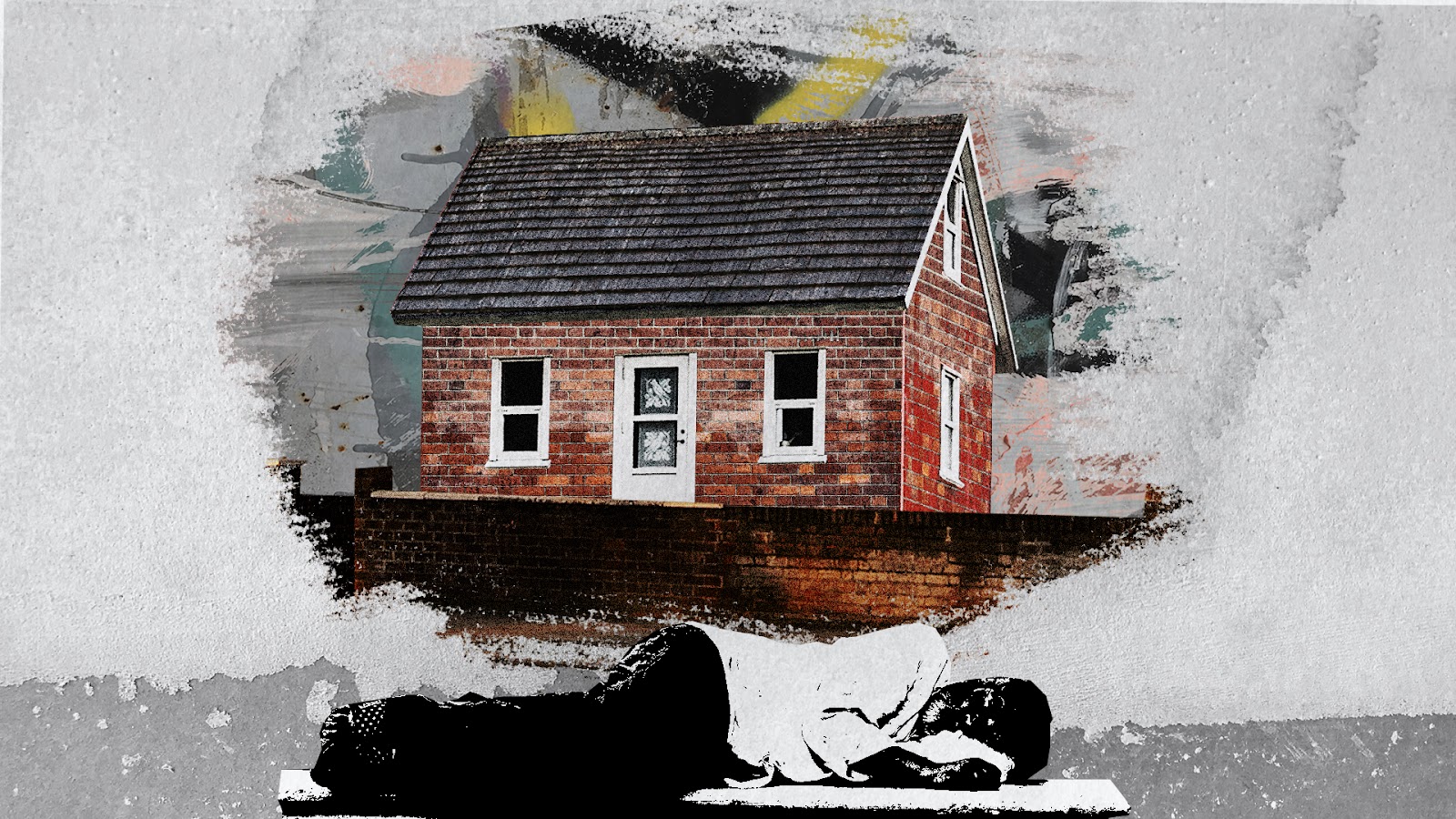
On the inside, things soon became unmanageable. “No one had any idea what they were doing,” says a former employee who worked at Big Help Project in 2021. She worked in the housing branch of the charity and tells me it was overrun with people with no formal training in housing or support work. This, she says, is the reason people were left living in bad conditions or without adequate support they were entitled to.
“It was just extremely shocking and upsetting,” she told The Post, recalling that she was often forced to give tenants keys to houses that were uninhabitable, some without gas or electricity safety certificates. “They [her managers] would just tell me they’d sort that all out later,” she says, “but they just wouldn’t.”
I tell the former housing officer about Sam, the young man who killed himself in a Big Help Project property in 2021. She’s sad but unsurprised, adding that there were “a number of suicides” in the charity’s accommodation while she was working there. On the face of it, this might be expected in accommodation provided for highly vulnerable people. But one thing bugged the housing officer. “Some of the bodies were left for longer than they should have been because they're meant to get support on a regular basis but didn’t,” she says, “the bodies were left there for days”.
Maya knows this more than most. Months before Sam’s death, she had asked to see a copy of his support plan, concerned about the lack of care he had been receiving. “He told me he had no idea what I was talking about, he’d never seen a support plan,” she says, adding that her other neighbour — who was also receiving support for his addiction issues — had never seen his support plan either. The Post has seen the emails in which she asked the charity’s management for a copy of the plans to provide to both men. They ignored her requests.
According to three other former employees of Big Help Project, it was “common knowledge” the organisation was unable to support residents in the way it was supposed to. I ask them if they voiced their concerns with senior management. If things were so awful and badly run, surely management would intervene? “The issue is that [Peter Mitchell] employs all of his friends and family,” the former housing officer tells me, explaining this made it hard to flag problems or make complaints.
She says that on one occasion she did attempt to speak to colleagues about the lack of support and bad quality of the homes. Hours after doing so, she says she was dragged into an office and shouted at by her manager, told to “get on board” or leave the job. Other accounts from former employees mirror hers. One tells me the charity was “top to bottom [Mitchell’s] family and friends”, and another says she left her job because she “couldn’t cope with the nepotistic culture” there.
Big Help Project told us that “no member of staff ever directly contacted Big Help with a concern or formal grievance about these issues”. We also asked them about the suicides that happened in their properties, and if copies of support plans were provided to residents. They did not directly address these questions but said the charity was “dedicated to supporting our residents in the most positive way”.
An empire in peril
In January 2023, the charity listed five trustees: Peter Mitchell, Colette Goulding, Tammy Burgess, Paul Banks and Stephen Boulger. Charity trustees are like non-executive directors of a commercial company — their job is to oversee the management team and hold them to account, without getting embroiled in the day-to-day operations which could result in conflicts of interest. But in Big Help Project’s case, that would be difficult, because four out of five (all except Boulger) were also members of the senior management team.
This raises serious questions about the trustees’ independence and therefore the oversight of Big Help’s management. Since we began working on this story, three out of five of the charity’s trustees have stepped down, including the Liverpool councillor Colette Goulding — with just Mitchell and Boulger remaining from the original list. A further two trustees have been added since the Charity Commission launched its investigation — including the former leader of Knowsley Council Andy Moorhead, who currently works as the charity’s National Head of Refurbishment.
Big Help Project’s head of bid writing remains Joe Goulding, the son of Colette. Mollie Goulding, who describes herself on her LinkedIn page as a Visual Media Assistant at the charity, is Colette’s daughter.
Yet the apparent lack of oversight isn’t the only surprising thing you will find in Big Help Project’s public filings. Another is the £550,000 the charity spent in the two years ending March 2022 on a combination of “consultancy fees” and “other legal and professional costs”. These are significant sums considering that total staff costs over the same period were less than £1.5m. When we asked Big Help whether any part of its expenditure benefited any individuals associated with the charity, they said it had not.
Then there’s something we found in an administrator’s report. Sometime between August 2019 and late 2020, Big Help Project leased 13 properties in Newcastle from a company called MIG Asset Management Ltd, which went into administration in December 2021. An administrator’s progress report dated from June 2022 noted that MIG Asset Management had made a loan of £37,500 “to a trustee of BH [Big Help Project]”, which remained outstanding. What was a property company doing paying this kind of sum to a trustee at an anti-poverty charity? When we asked Big Help which trustee received the money and why, a spokesperson told us: “I can’t give you any information on that”.
One of the challenges of reporting on Big Help Project is that it has not yet filed its 2023 accounts. As of today, the accounts are overdue by 74 days. Its 2022 accounts have also disappeared from the Charity Commission’s website in the time we have been reporting on this story, which the commission said was likely due to an “administrative error”.
Strangest of all is that the 2022 accounts have not been audited, which appears to be a clear breach of Charity Commission rules, given the size of the charity. Was Big Help Project struggling to find an auditor willing to sign off its accounts – the accounts, don’t forget, which show £15.8m of income?
When we tracked down Mark Roberts, the man listed as one of Big Help’s accountants, at his home, he told us that the auditor working on the job had died mid-audit. But when we put that story to charity, a spokesperson seemed surprised, before later coming back to say the auditor “became unwell”. When we asked in writing for the name of the stricken auditor, the spokesperson said they couldn’t provide it.
This leaves us with the 2021 accounts, audited by a one-man accountancy firm based in Essex: Leslie Eriera & Co Accountants. A quick Google search brings up a rather unsavoury history for Eriera: shortly after auditing Big Help Project’s accounts, Eriera was banned from being a company director for seven years after failing to file accounts for another of his businesses. A subsequent investigation revealed that while he had unpaid tax liabilities, he’d paid over £150,000 to other businesses connected to him and syphoned off £40,000 from bank accounts after one of his companies was told to wind up.
When we asked Big Help Project about their accounts for both 2022 and 2023, they told us both sets of accounts were due to be released over the coming weeks and were being audited by the London-based accountancy firm Raffingers. If those accounts do emerge, they will be hugely revealing. Much remains murky in this story, and it’s possible that Big Help Project will be able to answer the questions raised by this article when it releases its filings, including how a business empire built around a charity could possibly afford to buy a football club.
Despite the Charity Commission’s investigation, Mitchell is still very confident about the good works his charity is doing. “In 2023, we fed close to 240,000 people across the Liverpool City Region, had over half a million pounds worth of debt written off for our money advice clients, and have gained over £400,000 for clients in backdated benefits with an additional £1.15m in ongoing awards,” he told The Post.
But it’s also possible that by failing to get the 2022 accounts audited or releasing the 2023 accounts, Mitchell has been able to delay acknowledging that Big Help Project is in serious financial peril. Specifically, that the charity he has expanded at incredible speed likely faces the same risks that have already led other organisations operating in the treacherous world of “exempt accommodation” and Home REIT to collapse.
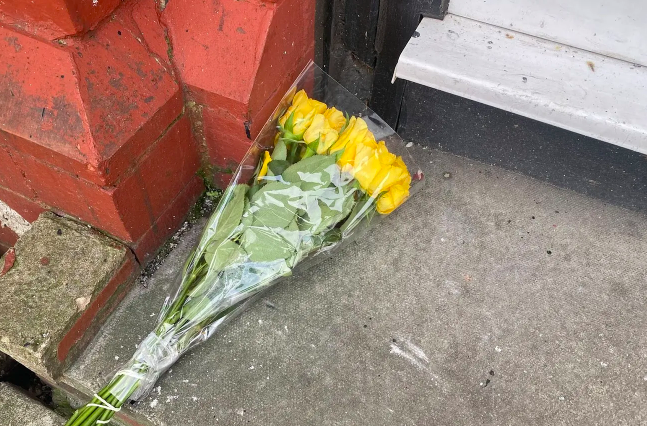
I’ve been in regular contact with Maya during the months I’ve been working on this story, and a few weeks ago, I gave her one more call. We agreed to meet outside her first property in Liverpool and when she arrived, she had a bouquet of yellow roses in her arms. She laid them on the doorstep of the flat where Sam lived and where he died, his passing observed only by his dog.
"It’s a weird feeling,” she said. “There’s a sense of relief that [they are] being exposed at last but I’m worried that somehow they'll get off.” At this point, she had tears in her eyes and we were both looking down at the flowers. “This story is for Sam.”
This was Part One of our investigation into Big Help – we’ve been working on it for a long time, so please help by sharing it. We will be publishing Part Two on Wednesday, and it will be for Post members only, so please join up now if you aren’t a paying member.
- The Labour councillor and her yoga company.
- Big Help Project was paid millions by property developers – where did the money go?
- And The Post obtains a secret recording of Mitchell in a business meeting. His biggest fear? That he will “wake up one morning and hear a bomb has gone off”.
If you have information to pass on, please contact Abi by email.

Comments
Latest
A ‘stitch up’? How Wirral council bungled Big Heritage
Merseyside’s buses are coming back into public hands. Why not trains too?
From Jimmy McGovern to Len McCluskey: The household names rallying behind Writing On The Wall’s employees
The lost department stores of Liverpool
Special investigation: The collapsing world of Liverpool’s charity kingpin
Former Labour councillor Peter Mitchell runs a charity that claims to bring in £15m a year. But there’s plenty that doesn’t make sense about Big Help Project